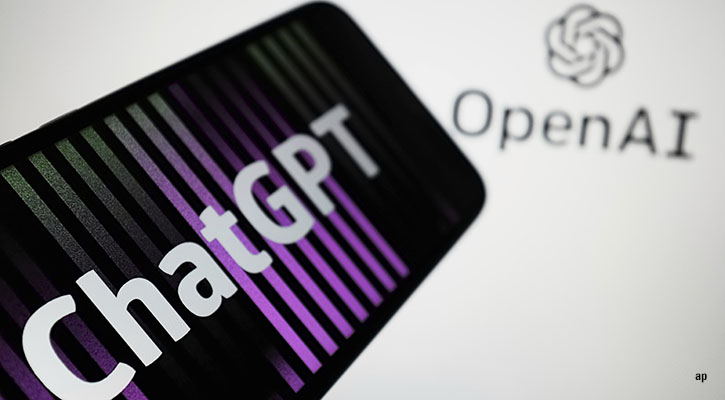
The Competition and Markets Authority (CMA) has announced that it is looking into Microsoft’s partnership with ChatGPT developer OpenAI, inviting parties to comment on whether it could impact competition in the UK.
This is the second time in recent months that Microsoft has come under scrutiny by the CMA, most recently for its move to buy gaming giant Activision Blizzard in 2022 for $68 billion.
The CMA cited the “developments” around OpenAI’s governance, some of which have included Microsoft, as a key reason for considering an investigation. The governance developments could have resulted in a relevant merger situation and, if so, it could impact competition.
The invitation to comment (ITC) is the first part of the CMA’s information gathering process and comes in advance of any launch of a formal phase 1 investigation.
The CMA is already monitoring the use of strategic partnerships and agreements, and how they could result in weakening of competition in the use of foundation models, or FMs (AI systems with broad capabilities that can be adapted to a range of different, more specific purposes).
The partnership between Microsoft and OpenAI (including a multi-year, multi-billion-dollar investment, collaboration in technology development and exclusive provision of cloud services by Microsoft to OpenAI) represents a close, multi-faceted relationship between two firms with significant activities in FMs and related markets, the CMA says in its statement.
“The CMA will review whether the partnership has resulted in an acquisition of control – that is, where it results in one party having material influence, de facto control or more than 50% of the voting rights over another entity – or change in the nature of control by one entity over another.”
Sorcha O’Carroll, senior director for mergers at the CMA, says that the invitation is only the first part of the watchdog’s information gathering process and that any phase 1 investigation “would only happen once the CMA has received the information it needs from the partnership parties.”
Responding to the CMA announcement, Brad Smith, vice chair and president at Microsoft, says: “Since 2019, we’ve forged a partnership with OpenAI that has fostered more AI innovation and competition, while preserving independence for both companies. The only thing that has changed is that Microsoft will now have a non-voting observer on OpenAI’s Board, which is very different from an acquisition such as Google’s purchase of DeepMind in the UK. We will work closely with the CMA to provide all the information it needs.”
Frank Shaw, chief communications officer at Microsoft, adds: “While details of our agreement remain confidential, it is important to note that Microsoft does not own any portion of OpenAI and is simply entitled to share of profit distributions.”
Real Concern or Just an Inconvenience?
Commenting on the CMA announcement, Morningstar’s Europe markets strategist Michael field told us that when the world’s largest AI firm takes a huge stake in the company behind the world’s most popular generative AI tool, market regulators take notice.
“After the boardroom saga that followed the departure, and subsequent return, of CEO Sam Altman, Microsoft managed to wangle themselves a board seat. This is the source of concern for the CMA, with the question now being, ‘has the deal given them an acquisition of control?’. At a minimum, the review initiated by the regulator will allow them to investigate exactly how the new governance arrangements work at Open AI.
“For Microsoft, this is certainly an inconvenience, but far from a killer blow to the arrangement. The danger however is that this review sparks more interventions by regulators in other jurisdictions.”
CMA’s Fight with Big Tech
As mentioned, this isn’t the CMA’s first tussle with Microsoft. UK regulators tend to keep a low profile – some may say too low – unless something goes wrong and they often are blamed for dysfunction or poor practice in their industries, such as Ofgem in the energy sector and Ofwat in the water sector.
But the CMA was perceived to have fought the good fight against Big Tech when it intervened in Microsoft’s Activision Blizzard deal. It initially blocked the takeover on competition grounds, arguing that it would lead to smaller consumer choice in the gaming market, which can be very lucrative (as we discussed this week with the soft launch of GTA VI). The CMA's objections also focused at that time on competition in cloud services. Eventually, Microsoft changed the terms of the takeover, satisfying the CMA’s objections, and the deal went through on October 18, 2023. The deal is still in the hands of the US regulators and is going back and forth between lawyers.
Morningstar’s consumer tech analyst Neil Macker explained in a note why the CMA’s move caused such shockwaves at the time and what was at stake.
While Microsoft eventually prevailed in the UK, the CMA was seen to have grown in stature after this battle – which sent a not-so-subtle warning to other potential acquisitive companies that this sort of deal could be thwarted or delayed.
The European Commission also has a long battle history with Microsoft, so leaders there will also have been cheered by the CMA’s actions. When the UK left the EU, the assumption was that consumer legislation and protection would be weakened, but in the CMA’s case this regulator seems to be capable of fighting its corner.
Written by Sunniva Kolostyak and James Gard








:quality(80)/cloudfront-us-east-1.images.arcpublishing.com/morningstar/F2S5UYTO5JG4FOO3S7LPAAIGO4.jpg)




















